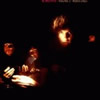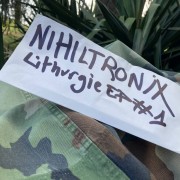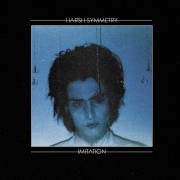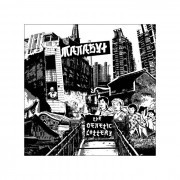Born in 1993 as ICK. Mutated to Nihiltronix in 2008. When old school industrial muzak meets minimal punk synth. The subjects evocated are mental diceases, social riots, social resistance, mysthicisim, especially Christian and Pagan ones. NT can be a collective. It depends on the people who gravitate around Nada-Negator. [Discogs]
|
Desolation Colony materialized in the summer of 2019 in the brutal New Orleans heat. While on tour in Europe with Azar Swan, Joshua Strachan became equally inspired by the writing of Jeff VanderMeer and the spaces and sound systems of the venues Azar Swan was playing. After sketching several pieces of music, he invited fellow Wierd Records alum Justin Vial (Kindest Lines) to contribute additional elements, and enlisted longtime collaborator Kris Lapke (Alberich, Prurient) to mix. The project name is taken from one of the most well-known passages in the novel “Annihilation,” a work which Strachan describes as “deeply impactful in terms of how it casts certain kinds of ecological philosophy in poetic terms.” Glad to cite the apocalyptic environmental death disco of early Skinny Puppy as an influence, Strachan also points to various power electronics and black metal artists as inspirations. “There’s this thread in ‘Annihilation’ about sort of letting go of the human as the human has been conceived thus far, and black metal is really the music that I think has most dwelled on that idea, so it seemed an appropriate ingredient to include. But it’s also supposed to sound massive in clubs.” Imitation or Archetype? Mimicry or Mandela Effect? Harsh Symmetry, the darkwave project of musician Julian Sharwarko, is gearing up to launch its sophomore album titled “Imitation.” Recently relocated from Sacramento to Los Angeles, Sharwarko has crafted an album that seamlessly blends the nostalgic elements of influential bands like Depeche Mode, The Cure, and New Order, with the modern sounds of contemporary acts such as Twin Tribes and Boy Harsher. The forthcoming nine-song LP is set to be released via Fabrika Records, a label renowned for its roster of influential darkwave and post-punk artists. Volcan is the alias of Greg Vezon who started to publish songs in 2012, he practices synthetic music which oscillates between ambient, minimal & cold electronica. His machine-based live, built around evolutionary loops, building up atmospheric and hypnotic landscapes, has allowed him to perform in France, Europe & Asia. “Chanson pour le néant” is his 2nd release on Objet Trouvé. On this album the artist shows his own dystopic view on the random game of life. Black or white? women or men? sexuality? iq? state? religion? destiny or american dream? The darkness of this record’s sound doesn’t really leave a choice to answer. Between fast edged drums and off-key harmonics you get thrown into the ups and downs of a likewise horrible as appealing fever dream in seven sequences. |






